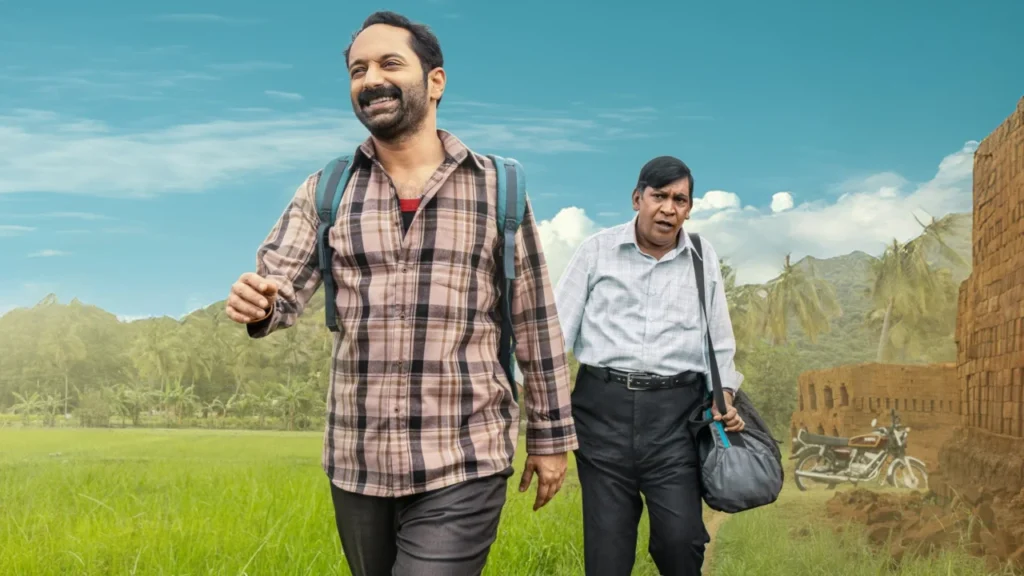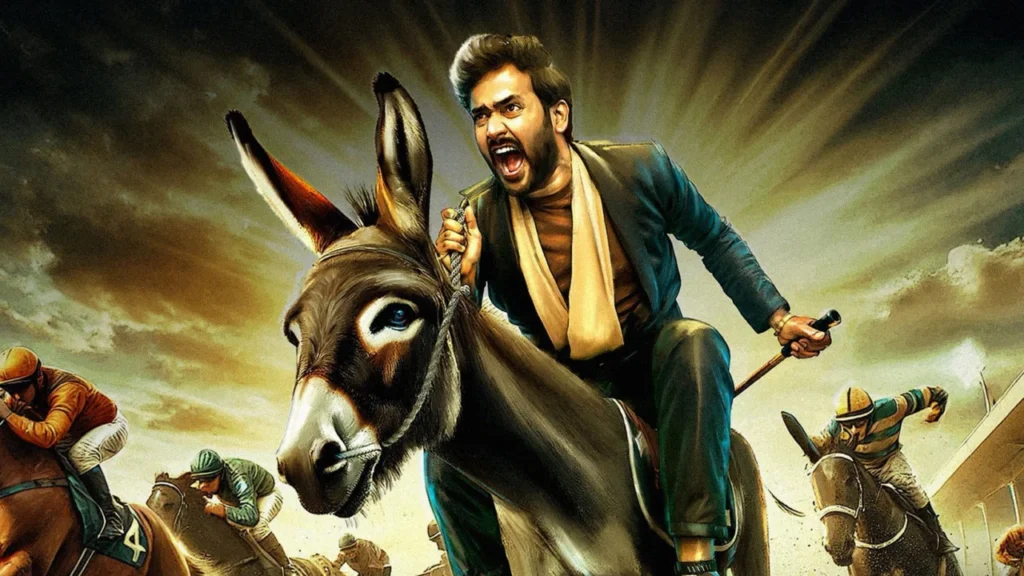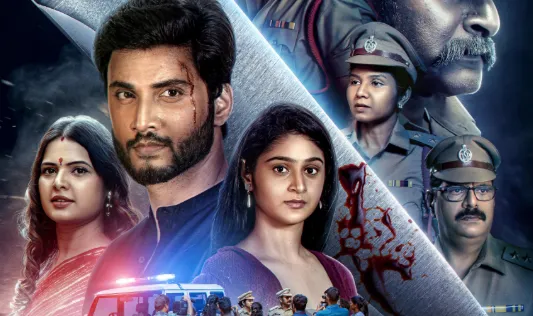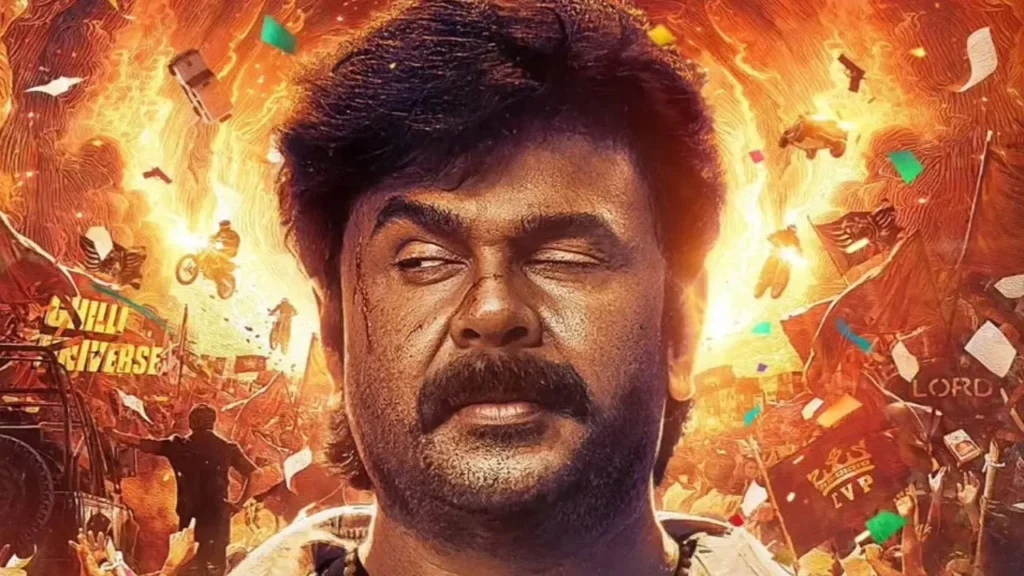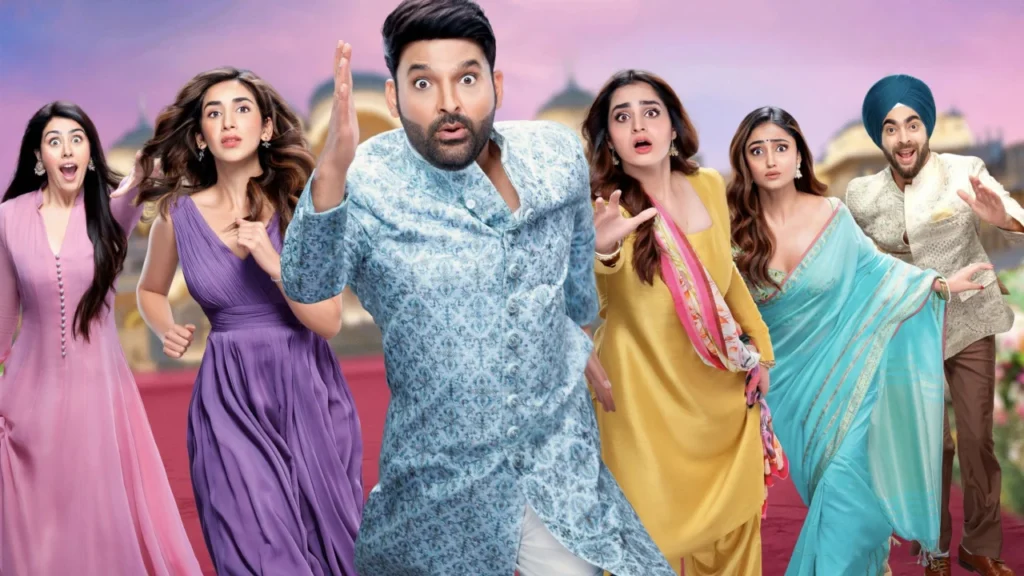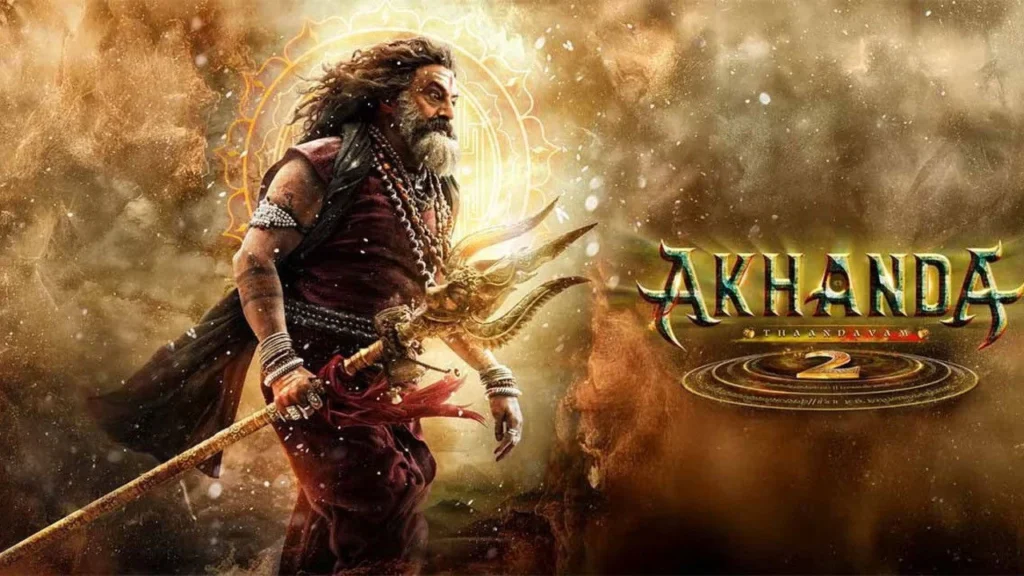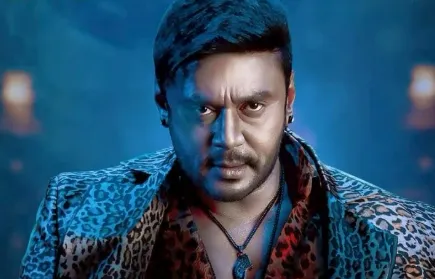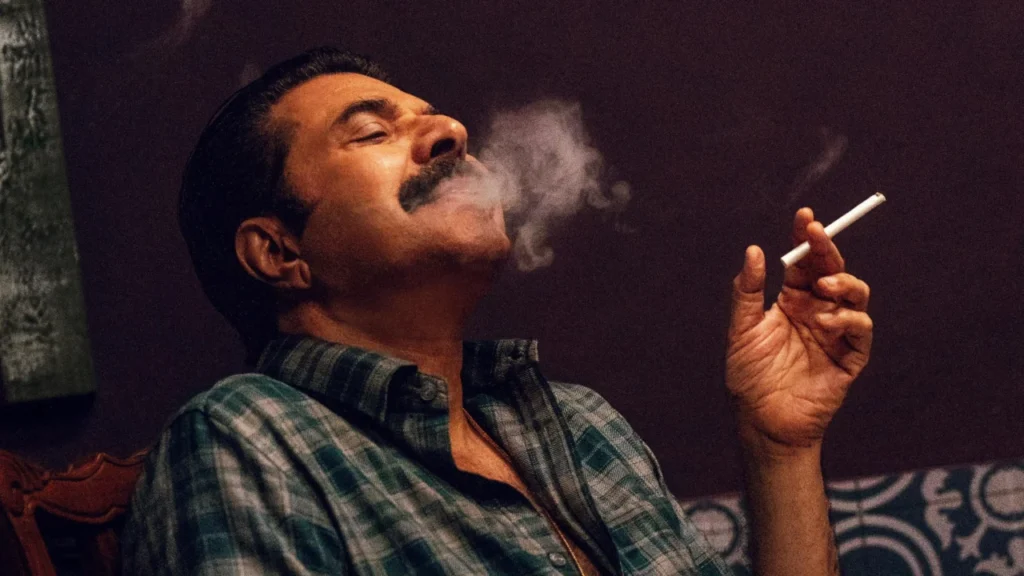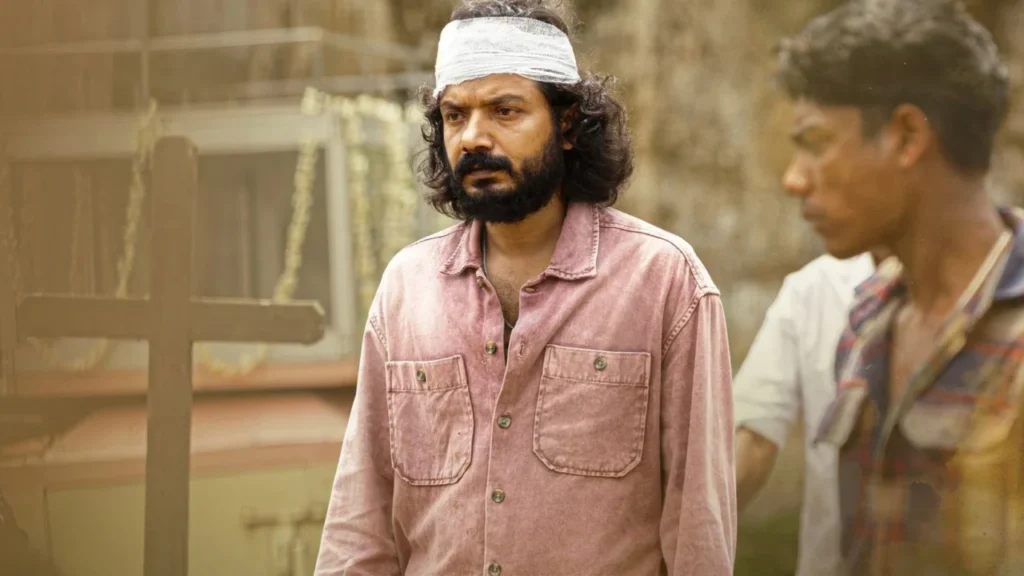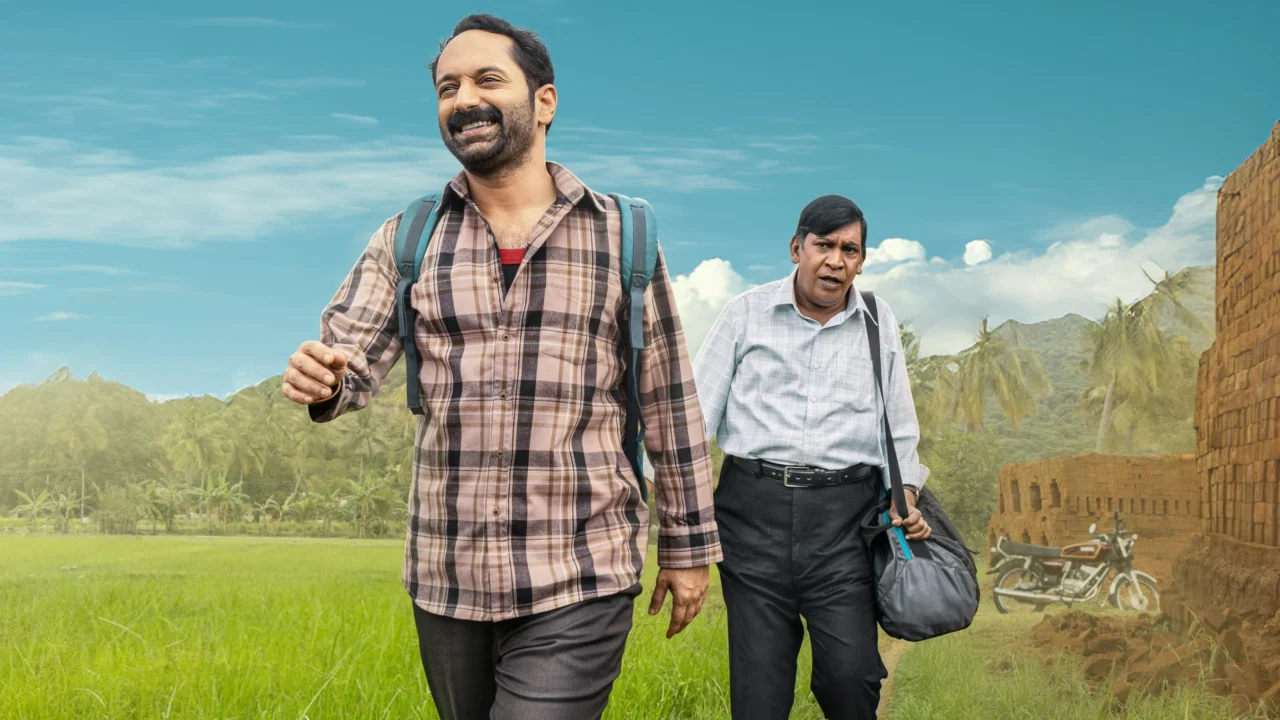
Maareesan (2025) REVIEW: Fahadh Faasil and Vadivelu’s Chemistry Can’t Save This Road Trip
Maareesan represents director Sudheesh Sankar’s bold attempt to craft an unconventional road movie. This Tamil film pairs Fahadh Faasil with comedy legend Vadivelu in a story that promises depth but delivers inconsistently.
The movie follows two strangers whose chance encounter leads to an unexpected journey. While the premise sounds familiar, the execution aims for something different, though it doesn’t always succeed in its ambitions.

The Heart of the Story
At its core, this is a tale about human connection emerging from unlikely circumstances. The narrative takes us through Tamil Nadu’s landscapes as two very different men discover common ground.
Dhaya, played by Fahadh Faasil, is a man with questionable intentions. His encounter with Pillai, Vadivelu’s character struggling with memory issues, sets the entire story in motion.
Their cross-state journey becomes a canvas for exploring themes of trust, redemption, and the bonds that form between strangers. The script tries to weave together comedy and drama with varying degrees of success.
What starts as a potentially exploitative situation slowly transforms into something more genuine. The transformation feels organic at times, though the pacing doesn’t always support this evolution effectively.
The backdrop of Tamil Nadu’s highways serves as more than just scenery. The locations become part of the storytelling, reflecting the internal journeys both characters undergo.
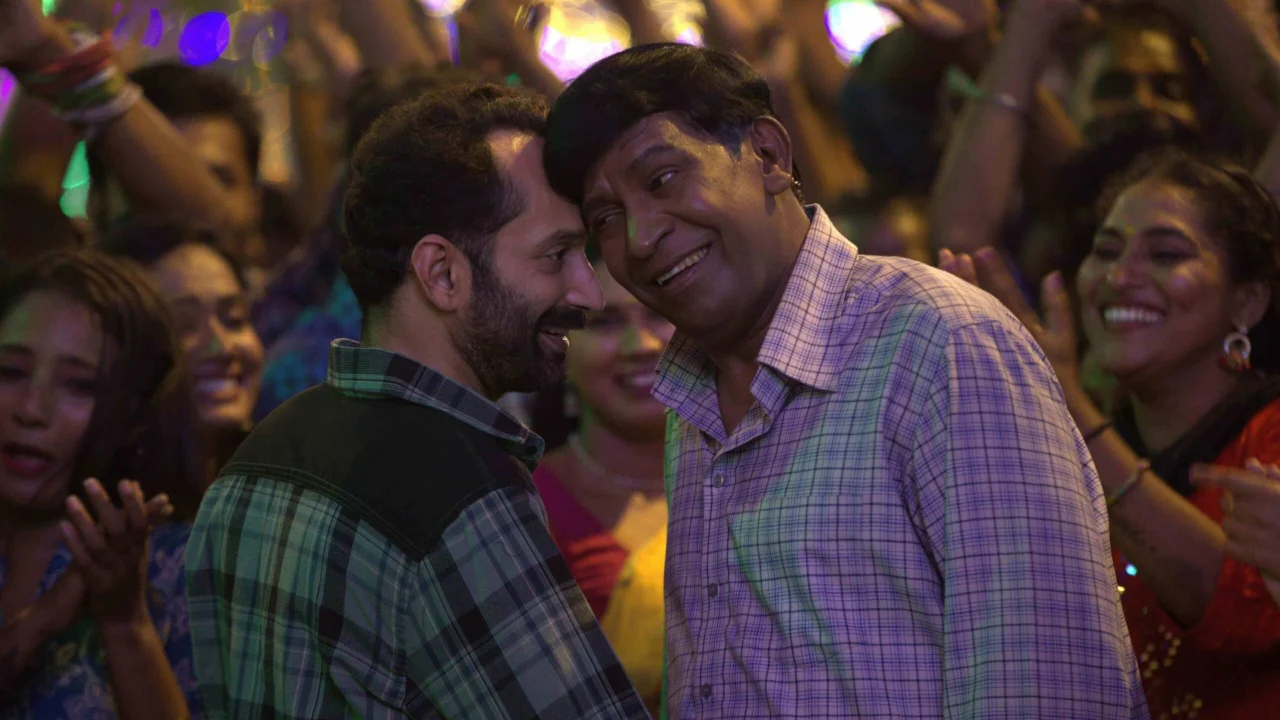
Acting That Elevates the Material
Fahadh Faasil once again proves his versatility in a role that requires constant shifting between charm and menace. His portrayal of Dhaya captures the character’s internal conflict beautifully.
The actor’s ability to show moral ambiguity without losing audience sympathy is remarkable. He makes Dhaya’s journey from selfish opportunist to someone capable of genuine care feel believable.
Vadivelu’s dramatic performance might surprise those who know him primarily for comedy. His portrayal of a man battling memory loss carries real emotional weight and authenticity.
The veteran performer brings dignity to a character who could easily have been played for cheap laughs. Instead, he creates someone genuinely human and relatable.
Their on-screen partnership generates the film’s best moments. When these two actors share the frame, the movie comes alive with energy and emotional truth.
Supporting performances from Vivek Prasanna and Kovai Sarala add texture to the world. They create believable characters rather than just plot devices.
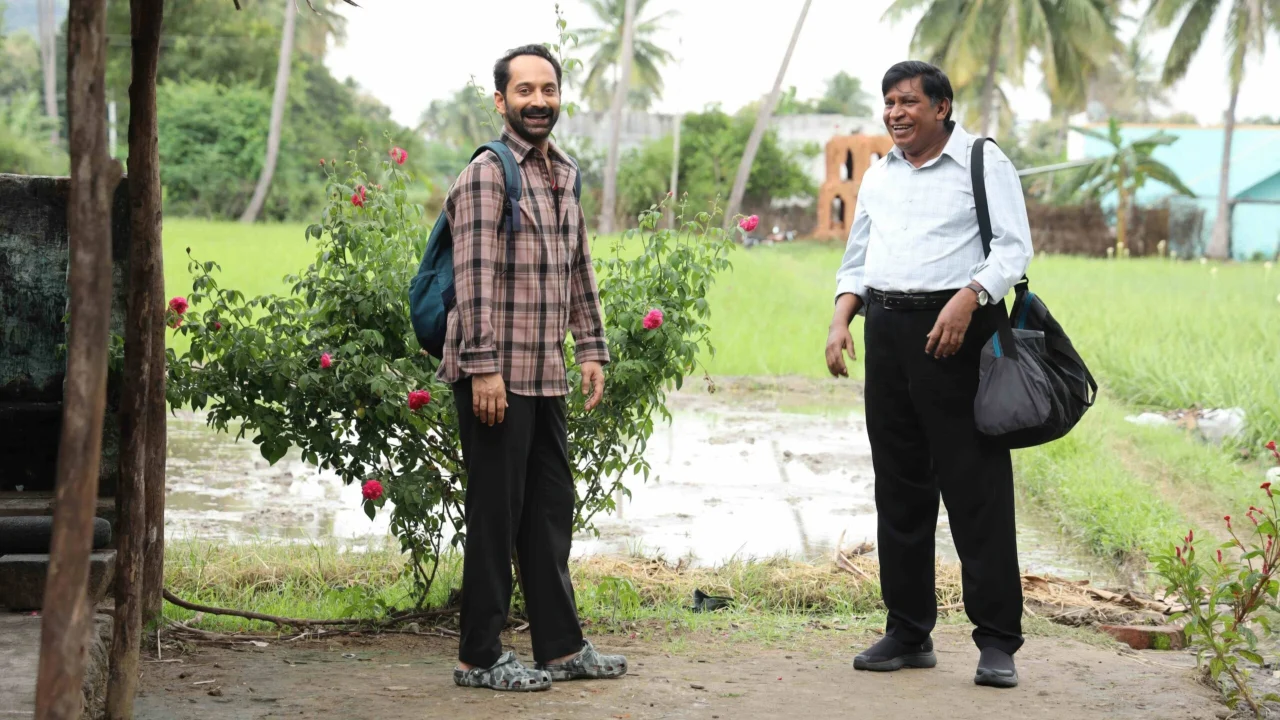
Behind the Camera
Sudheesh Sankar’s direction shows ambition but lacks the finesse needed to pull off this complex narrative. His vision is clear, but the execution stumbles at crucial moments.
The director handles intimate character moments well but struggles with the bigger picture. Scenes between the leads work beautifully, while broader plot elements feel less assured.
Yuvan Shankar Raja’s music provides emotional support throughout the journey. His compositions understand the film’s heart even when other elements falter slightly.
The cinematography captures both the beauty of the locations and the intimacy of character interactions. The visual approach serves the story without calling attention to itself.
My Take on the Experience
I found myself drawn into the central relationship despite the film’s structural problems. The connection between Fahadh Faasil and Vadivelu feels genuine and earned.
The movie works best in its quieter moments when the script allows the actors to simply exist in their characters’ shoes. These sequences have a natural flow that’s quite engaging.
However, I struggled with the film’s tonal shifts. The transition between comedy and serious drama doesn’t always feel smooth or intentional, creating jarring viewing experiences.
The pacing issues become noticeable during the middle section. The film takes its time developing relationships, but not all viewers will have the patience for this approach.
Where the Film Stumbles
The screenplay structure creates problems that even strong performances can’t fully overcome. The story tries to juggle too many elements without mastering any of them completely.
Some plot developments feel forced rather than organic. When the script pushes the story in certain directions, the natural character dynamics get strained unnecessarily.
The film’s thematic ambitions sometimes clash with its execution. Important messages get lost in storytelling choices that don’t always support the intended meaning effectively.
Character motivations become unclear at key moments. This confusion undermines the emotional impact of several potentially powerful scenes throughout the narrative.
Critical and Audience Divide
Professional critics have been largely unimpressed with Maareesan. Most reviews highlight the performance quality while criticizing the overall storytelling approach and execution.
Cinema Express and other outlets have pointed out the film’s inability to balance its different narrative threads successfully. The critical consensus suggests missed opportunities rather than outright failure.
Audience reactions paint a different picture. Many viewers seem more willing to overlook structural flaws in favor of the strong central performances and emotional moments.
The IMDb rating reflects this divide, with general audiences appreciating elements that critics find problematic. This gap suggests the film connects on an emotional level despite its flaws.
Bottom Line Assessment
Maareesan succeeds as an actor’s showcase while failing as a cohesive cinematic experience. The performances deserve recognition even if the overall package doesn’t fully satisfy.
For viewers who prioritize character work over plot mechanics, this film offers genuine rewards. The central relationship provides emotional payoff that makes the journey worthwhile for some.
However, those expecting tight storytelling and consistent tone will likely feel frustrated. The film’s ambitions exceed its ability to deliver on all its promises successfully.
The movie represents both the potential and limitations of contemporary Tamil cinema. Great talent can elevate flawed material, but it cannot completely transform it into something it isn’t.
Rating: 2.5/5

